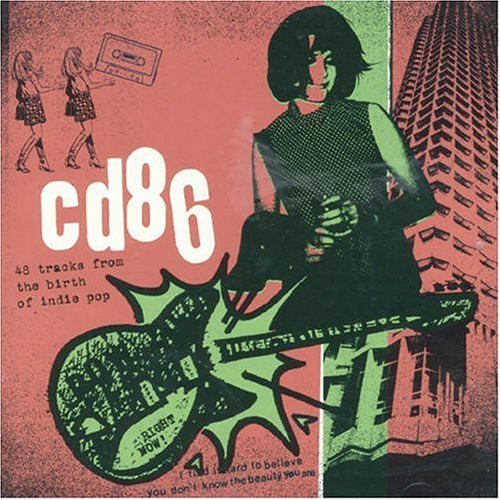CD86 - Protein Coding Gene Or The Birth Of Indie?
In some circles, CD86 refers to a protein coding gene that is a member of the immunoglobin family. It binds with CD28 antigen and signals the activation of the T-cell. It also binds with cytoxic T-lymphocyte-associated protein 4, regulating T-cell activation and diminishing the immune response.
However, on this blog CD86 refers to a newly released compilation of early indie tunes.

The name is taken from a cassette compilation released by NME in 1986 simply called C86. The tape was compiled to reflect the new music scene of the time and ended up becoming the name for an entire genre of music. Although the original compilation showcased indie bands with a punky edge (due to the influence of early 80s post punk) the genre eventually became known for jangly guitars, catchy pop and a very melodic sound.

Many people argue whether the tape was the most indie thing ever or if it was completely unrepresentative of what was actually happening. One thing C86 did (and CD86 remembers) was to introduce new music from the explosion of new bands that combined punk attitudes and DIY ethics with a totally new sound. All of the bands included did everything themselves from making the records, doing the artwork, gluing the sleeves together, releasing the records and posting them out to shops. The bands even wrote their own articles for magazines and fanzines because the press had no interest.
Although most bands have been forgotten, some survived and went on to achieve huge success. Some of the bands that emerged from this scene are:
Aztec Camera
Belle & Sebastian
My Bloody Valentine
Pop Will Eat Itself
Primal Scream
The Groove Farm
The Jesus And Mary Chain
The Soup Dragons
So, 20 years on this CD is a good way to look back at the only truly independent thing that happened in British rock between The Smiths & The Roses.
However, on this blog CD86 refers to a newly released compilation of early indie tunes.

The name is taken from a cassette compilation released by NME in 1986 simply called C86. The tape was compiled to reflect the new music scene of the time and ended up becoming the name for an entire genre of music. Although the original compilation showcased indie bands with a punky edge (due to the influence of early 80s post punk) the genre eventually became known for jangly guitars, catchy pop and a very melodic sound.

Many people argue whether the tape was the most indie thing ever or if it was completely unrepresentative of what was actually happening. One thing C86 did (and CD86 remembers) was to introduce new music from the explosion of new bands that combined punk attitudes and DIY ethics with a totally new sound. All of the bands included did everything themselves from making the records, doing the artwork, gluing the sleeves together, releasing the records and posting them out to shops. The bands even wrote their own articles for magazines and fanzines because the press had no interest.
Although most bands have been forgotten, some survived and went on to achieve huge success. Some of the bands that emerged from this scene are:
Aztec Camera
Belle & Sebastian
My Bloody Valentine
Pop Will Eat Itself
Primal Scream
The Groove Farm
The Jesus And Mary Chain
The Soup Dragons
So, 20 years on this CD is a good way to look back at the only truly independent thing that happened in British rock between The Smiths & The Roses.


0 Comments:
Post a Comment
<< Home